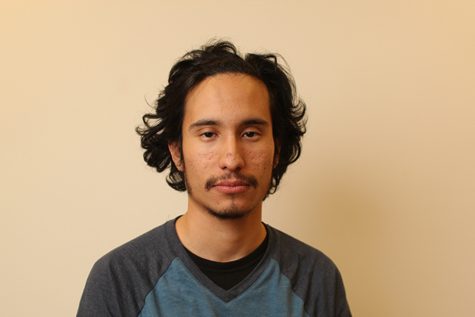Contract agreement increases salary
Faculty receive 5 percent raise after negotiations
Oct 21, 2015
For the first time in nearly a decade, the district and United Faculty have negotiated a substantial raise of more than 2 percent for the contract agreement for 2015-16.
The agreement was ratified at the district Governing Board meeting on Oct. 7, thereby increasing faculty salary by 5 percent, retroactive to July 1.
The UF’s newsletter Table Talk states that the agreement raises salaries 5 percent overall with some variations based on faculty assignment type, adjusts faculty evaluation forms, adds steps to the full-time salary schedule and annualizes health-insurance premiums for part-time faculty.
The district will also cover its full share (94 percent) of any increase in health care premiums, according to the agreement.
“I think it is a real shot in the arm,” UF Vice President Jeffrey Michels, who is also a Contra Costa College English professor, said.
“The raise is a good investment. Faculty are the product (of the college) and we are what we provide to the students. The better paid (faculty) are, the better they are at their jobs,” Michels said.
The collective bargaining process allowed for the district to add at least 21 new full-time faculty positions for 2016-17, seven of which will be hired at CCC, Chancellor Helen Benjamin said during the Oct. 7 Governing Board meeting.
Other important items in the agreement mentioned are:
n Part-time faculty annualized medical premiums beginning in fall 2016 for eligible members based on the average load for that member.
n Revised evaluation forms to better reflect how student learning outcomes are being documented due to accreditation recommendations made to all three colleges.
n A part-time equity hour, designed to help faculty recognize and support at-risk and underserved students budgeted within the agreement.
Much of this additional funding is supplied by the 2015-16 state budget for community colleges.
Total funding from the state to community colleges is $7.7 billion, a 12 percent increase from 2014-15 fiscal year.
The state budget also identifies $266 million to increase base allocation funding meant to ease the constrained funding environment colleges have experienced since the economic downturn in 2008.
Also included in the state budget is $61 million for a cost of living adjustment bringing it to a little more than one percent for the 2015-16 year and $62 million to increase the hiring of full-time faculty.
District Executive Vice Chancellor Eugene Huff said $1.5 million from the state budget will be used to hire the aforementioned faculty positions at CCC.
Michels said other priorities that were excluded from the agreement that the UF is hoping to address are equity issues.
The UF established a Load Task Force during the 2014-15 tentative agreement intended to observe and improve lab load assignments.
Load is the number and type of classes each faculty member teaches. Every class, depending on its type, carries a certain amount of workload value, UF President Donna Wapner said.
The task force came into formation to review the lecture, lab, activity and composition class types in order to make recommendations on improving load amounts.
Wapner said the task force’s initial focus is on science lab loads due to the rigorous amount of work that these classes demand, and the heavy workload it places on those instructors.


